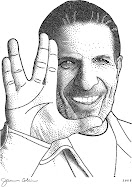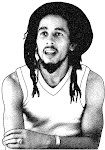 This past Sunday in the late afternoon I went shopping at a packed working-class Costco in Richmond, CA. I was surprised by the scarcity of African-American shoppers. While I waited in line, I counted 100 similar waiting shoppers, but fewer than 10 Blacks. As background, Richmond has a ton of Black residents (36%), as does nearby West Berkeley and North and West Oakland. Black employees looked to be more than 50%. I checked my perception with a friend I ran into, and he confirmed it.
This past Sunday in the late afternoon I went shopping at a packed working-class Costco in Richmond, CA. I was surprised by the scarcity of African-American shoppers. While I waited in line, I counted 100 similar waiting shoppers, but fewer than 10 Blacks. As background, Richmond has a ton of Black residents (36%), as does nearby West Berkeley and North and West Oakland. Black employees looked to be more than 50%. I checked my perception with a friend I ran into, and he confirmed it.So, why so few Black shoppers? From an economic standpoint, the deep-discount and bulk savings available would seem a natural draw to economically-constrained Blacks, similar to working-class Latinos, Asians, Whites, and everybody else, but t’is not the case. I could be off by a bit, but I peg my savings, over standard grocery retail, at 25-40%, and well worth the long lines and the $60 annual member fee, regardless of income level.
Maybe Black folks are in church all day on Sunday, making me just another heathen who picked the wrong day to notice, but I have another theory. It has to do with time-horizons - that degree to which someone looks ahead, relative to their peers. In order to shop effectively for grocery items at Costco, one must plan at least a month into the future, and have the desire to stick to the economic and dietary script they have created. My own mother did this very well thirty years ago, with a big freezer and pantry in the basement.
I was told, by more than one Black person I have since asked, that most (not all) Blacks cook, eat, and grocery shop, on a much shorter time-horizon by comparison to other groups, which does not lend itself to taking advantage of the significant discounts and savings of longer-term shopping at places like Costco. This thinking is consistent with studies on wealth and inequality (here).
If my observation is correct, Black folks need to go to school on the benefits of stretching a dollar by stretching their dietary time-horizons. This is the opposite of the current saturation of Black and low-income neighborhoods with fast-food establishments, with the host of obesity health issues in tow (here). Nevertheless, I remain skeptical about what I saw at Costco. I wonder if I am just missing something. Perhaps one of this blog’s astute readers can help?
James C. Collier
READ MOST RECENT POSTS AT ACTING WHITE...
Technorati Tags: Do Black People Avoid COSTCO?, Future Time Orientation, Time Horizon, Immigrants, Acting Black, Acting White












































16 comments:
hmm it goes deeper than that. I think you're missing a lot.
Even when you think that far ahead most people just don't make enough money. Your mother may have been able to to stretch and buy in bulk but the landscape has changed economically since then. for one thing even cereal is more expensive. My grandmother raised ten kids and my mom can still tell me when cereal was like 19 cents a box?
When you make 7.25 an hour, after taxes seven, even with food stamps, once you cut out transportation costs and other expenses, you really don't have anything left over to "save". And what little you do have even if you save it consistently, doesn't amount to much. Only after years at a time, but when you CONSTANTLY need things, it doesn't make sense to just leave money sitting in an account somewhere.It goes against common sense. Most poor people can save for specific things like a car on such a limited income until they get farther up. Plus it's other things like housing displacement, that make buying in BULK inconvienient. Alot of times if you're poor you live in a room or have to share a small amount of space. Where the hell are you going to put a big ass steak, or a 10 pound bag of rice when you share a refrigerator with people?
Take into account also people who live in shelters where you can't store any food even if you have kids. They save their money too but they can't often do it down to the last penny because of shit like that.
Plus a lot of people who are poor don't own cars, have access to them, or if they do own them they tend to be unreliable or just for work, or break down easily. A lot of these bulk cheap stores are purposefully placed in the suburbs out the way of a bus line, where you need a car to get to them. But even if you could take a bus how much can you bring back?
Here are some books that'll help you understand, get a better picture of poverty:
"Nickeled and Dimed."
"The Big Squeeze: Tough Times for the American Worker"
Or you could even ask some black people why they don't/can't go to costco. I know how to save, but in the past when I was bouncing from shelters and right now making no money practically living with roomates, half of these ways to save I just could not do. Even now I hate how much money I spend on food and I finally broke down and applied for food stamps. I'm saving but I can only save permmenantly 10% of my income. The rest goes to car savings, just in case, short term emergency, and I'm pretty good about it.
Student, thanks for the input. I get why poor people, of any color, might find it difficult to take advantage of COSTCO, but I still am unsure of why the place invites disproportionately fewer Blacks, who otherwise have the education, means, and need for saving money on groceries.
Well... it depends on where you're at.
Do you see other POCs at Costco? Hispanics for expl? Or even Amish people? I'm asking because when I worked at Sam's Club I saw lots of Amish and Hispanics, not as often as whites but probably just as often, but when I lived near a Costco I rarely ever saw them there except once in a blue.
I'm curious because, it might just be that for marketing reasons, Sam's Club is more popular. Even though Sam's Club is arguably more expensive it's also more access able in terms of where it's usually located, ect. ect.
Like in Buffalo NY in terms of pop demographics it's extremely red lined and very socially segregated. There's a Costco out here that is way the hell out in the suburbs where no bus goes to. They recently made a bus that goes to the Mall and they only extended the route because Canadian tourists use the route, but years before when the idea was originally proposed people fought it. And two places that were sundown towns are places where, to me, it seems like the best stores are, and it's a bitch getting out there when you have no car. Certain retailers are within the city limits, and others are outside. Most of the poor and here the poor are predominantly black(myself included, but I'm a student so hopefully not much longer) are concentrated in clearly marked areas and they have been YEARS. I'm not from here so it is taking some time for me to get used to it.
I think alot of black people just don't know about Costco? Alot of places I go to shop people will ask me where it is and how to get there that have lived here longer than me.
Also do you have kids? I notice a lot of people who have kids don't shop at Costco, nearly as often as they shop at Sams Club.
IDK why that is, but isn't Costco geared toward businesses? To a certain extent?
That must be a West Coast Phemon Brother, because I live in Metro Atlanta...and went to Costco yesterday, and not only are the three stores here mostly staffed by black folks, we are well represented as patrons...keep in mind a lot of blacks for some reason think SamsMart is cheaper!
FYI, I checked, and the nearest Sam's is about thirty miles away. Also, I saw lots of kids along for the shopping ride. Still wondering, what do blacks in Richmond, Berkeley and Oakland know about Costco that others of similar income, education, circumstances are missing, or vice versa. I'm still open.
I live in the Bay Area. The first
thing I would say is that a whole lot of Black people here do not have cars. Going all the way out to Richmond to Costco from Oakland or Berkeley and then lugging a bunch of bulk items back on the bus is a difficult thing to do.
Also in the Berkeley and Oakland areas there are quite a few discount grocery stores that are much easier to get to.
James, I can't view the "study on wealth and inequity" you linked from your post.
Would you please re-link it or offer an alternative?
Thanks.
Sorry off topic but I think you may find intersting: http://comfortabletruth.blogspot.com/2011/01/fun-chart-of-day.html
It's the homicide rate of cities, plotted over the african-american population percentage of the city
Anon 7:45, Try the link to the wealth survey now. I moved it to my drop-box.
Professor Collier
I was under the impression...that you all were more progressive on the left coast! We love COSTCO, and are lobbying for warehouses to be place closer to middle class black enclaves...but as anon indicated, it may be a perception issue with some black folks!
You're in the Bay Area, too? I'm a Bay Area native :) I no longer go to Costco (I moved to a city where there isn't one), but there were plenty of black people at the one I went to. And this was in a dominantly white city, so what you're saying is very strange to me. I don't go to Richmond often (not a fan of that city tbh), but maybe there's stores with better deals out there?
Is there anything different about Costco? Or does this apply to all warehouse types stores (i.e. Sam's and BJ's).
I was just reading about other people's Costco experiences and found this site--thanks for the post.
http://aemayer.com/blog/2011/07/costcomanners/
James,
You aren't imaging it. The lack of black shoppers at Costco is a function of economics and household demographics. The average Costco customer is wealthy, college educated, and owns their own business.
For example: The Costco Connection magazine is sent to 8.3 million members and according to some industry sources, has a reader base with a median household income of $108,000 and a household net worth of $984,000. The same sources say that 86.5% of subscribers own a home, 55% are college graduates, and 51% own their own business.
Given the poverty rates in certain demographic groups within the United States, it is *not* that African Americans aren't shopping at Costco. It is that only people in the top brackets of educational attainment, income, and wealth are; all three groups underrepresent African Americans relative to what one would expect as a portion of the general population.
As counterintuitive as it is, the actual retail data on Costco show that their targeting and business model have succeeded in making the customer base consist almost entirely of society's elite. The only stores that rank higher are the specialty firms like Saks and Neiman Marcus (the latter having the highest household income of any typical customer, coming in at well above $250,000 per annum).
Hope that sheds some light on it.
Joshua Kennon
P.S. "imagining" not "imaging" ... sorry about that.
Also, some really interesting facts are that Costco's average pay to employees is more than $17 an hour, and that was 6 years ago. They really are a fantastically run business. One of my corporate heroes, Charlie Munger, sits on the board of directors and I own a few shares through one of my operating companies, though not enough to matter or count as a serious investment.
Post a Comment